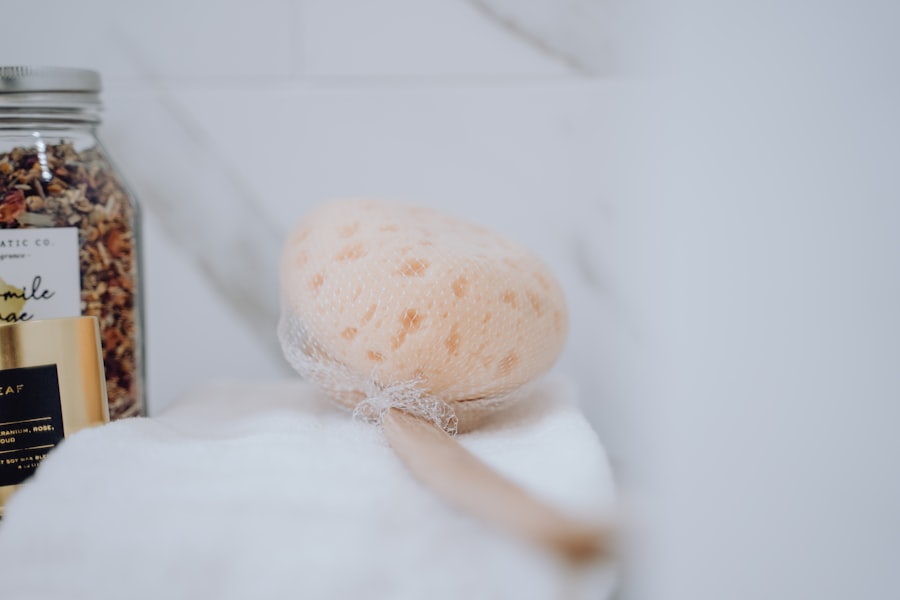Clean Home, Healthy Recovery: House Cleaning Tips for Transplant Patients

For transplant patients, maintaining a clean home is not just a matter of aesthetics; it is a crucial aspect of their health and well-being. After undergoing a transplant, individuals often have compromised immune systems due to the medications they must take to prevent organ rejection. This makes them more susceptible to infections and illnesses that can arise from exposure to dirt, dust, and harmful bacteria.
A clean environment can significantly reduce the risk of these health complications, allowing patients to focus on their recovery without the added stress of potential infections. Moreover, a tidy and organized space can contribute positively to mental health, providing a sense of control and comfort during a challenging time. In addition to physical health benefits, a clean home can also enhance the emotional well-being of transplant patients.
The process of recovery can be overwhelming, and a clutter-free environment can help alleviate feelings of anxiety and stress. When patients are surrounded by cleanliness, they are more likely to feel relaxed and at ease, which is essential for healing. Furthermore, having a clean space can encourage social interactions with family and friends, as patients may feel more comfortable inviting loved ones over when their home is in order.
Thus, the importance of maintaining a clean home for transplant patients extends beyond mere hygiene; it plays a vital role in their overall quality of life.
Key Takeaways
- A clean home is crucial for transplant patients as it helps reduce the risk of infection and promotes overall health and well-being.
- Use cleaning products and techniques that are safe for transplant patients, such as non-toxic and fragrance-free options.
- Establish a regular cleaning schedule and routine to maintain a clean and healthy living environment for transplant patients.
- Minimize dust and allergens in the home by using air purifiers, regularly changing air filters, and keeping windows and doors closed.
- Organize and declutter the home to create a healthier living environment for transplant patients, reducing the risk of accidents and promoting a sense of calm.
- Consider hiring professional help for deep cleaning to ensure a thorough and safe cleaning process for transplant patients.
- Maintain a clean and healthy home post-transplant by continuing to follow a regular cleaning schedule and using safe cleaning products and techniques.
Cleaning Products and Techniques Safe for Transplant Patients
When it comes to cleaning products and techniques suitable for transplant patients, safety should be the top priority. Many conventional cleaning agents contain harsh chemicals that can irritate the respiratory system or cause allergic reactions, which can be particularly dangerous for individuals with weakened immune systems. Therefore, opting for non-toxic, eco-friendly cleaning products is essential.
These alternatives are not only safer for the patient but also better for the environment. Products made from natural ingredients such as vinegar, baking soda, and essential oils can effectively clean surfaces without posing health risks. In addition to choosing the right products, employing gentle cleaning techniques is equally important.
For instance, using microfiber cloths can help trap dust and allergens without the need for chemical sprays. Steam cleaning is another effective method that sanitizes surfaces without harsh chemicals, making it an excellent choice for homes with transplant patients. It’s also advisable to avoid using sponges that can harbor bacteria; instead, disposable wipes or cloths should be used to maintain cleanliness.
By combining safe products with effective techniques, caregivers can create a healthy living environment that supports the recovery process.
Creating a Cleaning Schedule and Routine

Establishing a cleaning schedule and routine is essential for maintaining a clean home, especially for transplant patients who may have limited energy or mobility. A well-structured plan can help ensure that all areas of the home are regularly attended to without overwhelming the patient or their caregivers. Breaking down cleaning tasks into manageable segments can make the process less daunting.
For example, dedicating specific days to different areas—such as bathrooms on Mondays and living rooms on Tuesdays—can help create a sense of order and predictability in the cleaning routine. Moreover, involving family members or caregivers in this routine can foster a supportive environment for the patient. Assigning tasks based on individual strengths or preferences can make cleaning feel less like a chore and more like a collaborative effort.
Additionally, utilizing tools such as checklists or digital reminders can help keep everyone accountable and ensure that no task is overlooked. By creating a consistent cleaning schedule, transplant patients can enjoy a healthier living space while minimizing stress and fatigue associated with maintaining cleanliness.
Tips for Minimizing Dust and Allergens in the Home
| Tip | Description |
|---|---|
| Regular Cleaning | Regularly dust and vacuum your home to remove dust and allergens. |
| Use HEPA Filters | Use HEPA filters in your vacuum cleaner and air purifier to trap small particles. |
| Wash Bedding | Wash bedding, including sheets and pillowcases, in hot water to kill dust mites. |
| Keep Windows Closed | Keep windows closed during high pollen seasons to prevent allergens from entering the home. |
| Remove Clutter | Minimize clutter in your home to reduce the surfaces where dust can accumulate. |
Minimizing dust and allergens in the home is crucial for transplant patients who are particularly vulnerable to respiratory issues and infections. One effective strategy is to implement regular dusting and vacuuming routines using high-efficiency particulate air (HEPA) filters. These filters are designed to capture tiny particles that traditional vacuums might miss, ensuring that allergens such as pet dander, pollen, and dust mites are effectively removed from the living space.
Additionally, using a damp cloth for dusting can prevent particles from becoming airborne, further reducing exposure to allergens. Another important tip is to control humidity levels within the home. High humidity can promote mold growth, which poses significant health risks for individuals with compromised immune systems.
Using dehumidifiers in areas prone to moisture, such as basements or bathrooms, can help maintain optimal humidity levels. Furthermore, regularly changing air filters in heating and cooling systems can improve indoor air quality by trapping allergens before they circulate throughout the home. By implementing these strategies, transplant patients can create a safer environment that minimizes exposure to harmful irritants.
Organizing and Decluttering for a Healthier Living Environment
Organizing and decluttering play pivotal roles in creating a healthier living environment for transplant patients. A cluttered space not only contributes to increased dust accumulation but also creates mental stress that can hinder recovery. By systematically decluttering each room, patients can create an atmosphere that promotes relaxation and peace of mind.
This process involves sorting through belongings and determining what is essential versus what can be donated or discarded. A minimalist approach not only simplifies cleaning but also enhances the overall aesthetic of the home. In addition to decluttering, organizing belongings in an accessible manner is vital for transplant patients who may have mobility challenges.
Utilizing storage solutions such as bins, shelves, and labeled containers can make it easier to find necessary items without excessive searching or reaching. This organization not only streamlines daily activities but also reduces frustration and fatigue associated with navigating through cluttered spaces. Ultimately, fostering an organized environment contributes significantly to both physical health and emotional well-being during the recovery process.
Hiring Professional Help for Deep Cleaning

While maintaining cleanliness through regular routines is essential, there are times when professional help may be necessary—especially for deep cleaning tasks that require specialized knowledge and equipment. Hiring professional cleaning services can provide transplant patients with peace of mind knowing that their home will be thoroughly sanitized without compromising their health. Professionals are trained in using safe products and techniques tailored to meet the unique needs of individuals with weakened immune systems.
Moreover, professional cleaners have access to advanced tools that can effectively eliminate allergens and bacteria from hard-to-reach areas such as carpets, upholstery, and ventilation systems. This level of deep cleaning not only enhances the overall hygiene of the home but also contributes to improved air quality—an essential factor for transplant patients who need to minimize exposure to potential irritants. By investing in professional cleaning services like Cape May Cleaning Services, families can ensure that their loved ones are living in an environment conducive to healing and recovery.
Maintaining a Clean and Healthy Home Post-Transplant
Once the initial recovery phase has passed, maintaining a clean and healthy home remains crucial for transplant patients as they continue their journey toward full health. Establishing ongoing cleaning routines that incorporate safe products and techniques will help sustain an environment that supports their well-being long-term. Regularly scheduled deep cleanings by professionals can also be beneficial in keeping the home free from allergens and bacteria that may accumulate over time.
Additionally, it’s important for transplant patients to remain vigilant about their surroundings even after they feel better. This includes being mindful of any changes in their environment that could introduce new allergens or irritants—such as new furniture or renovations—and taking proactive measures to address them promptly. By prioritizing cleanliness and organization as part of their lifestyle post-transplant, individuals can continue to enjoy a safe haven that fosters both physical health and emotional resilience throughout their recovery journey.
In conclusion, maintaining a clean home is paramount for transplant patients as it directly impacts their health and recovery process. From choosing safe cleaning products to establishing effective routines and seeking professional assistance when needed, every step taken toward cleanliness contributes significantly to their overall well-being. For those looking for reliable support in achieving this goal, Cape May Cleaning Services stands out as an excellent solution for residential spaces, office environments, new construction projects, and Airbnb rentals alike.
Their expertise ensures that every corner is meticulously cleaned while prioritizing safety—making them an invaluable partner in creating a healthy living space for transplant patients and their families alike.
For transplant patients, maintaining a clean and sterile environment is crucial to prevent infections and ensure a successful recovery. An excellent resource that delves into the specifics of house cleaning for such sensitive conditions can be found in a related article. This article provides detailed guidelines and tips on how to effectively clean and sanitize a home to meet the needs of transplant patients. You can read more about these essential cleaning practices by visiting this link.
FAQs
What is house cleaning for transplant patients?
House cleaning for transplant patients refers to the specific cleaning and disinfecting protocols that are necessary to maintain a clean and safe living environment for individuals who have undergone organ or tissue transplants. This is important because transplant patients have weakened immune systems and are more susceptible to infections.
Why is house cleaning important for transplant patients?
House cleaning is important for transplant patients because it helps to reduce the risk of exposure to harmful bacteria, viruses, and other pathogens that could lead to infections. A clean and sanitized living environment can help to protect the health and well-being of transplant patients who are at a higher risk of complications due to their weakened immune systems.
What are some key considerations for house cleaning for transplant patients?
Some key considerations for house cleaning for transplant patients include using non-toxic cleaning products, regularly disinfecting high-touch surfaces, maintaining good indoor air quality, and minimizing exposure to potential allergens and irritants. It is also important to follow proper hand hygiene and sanitation practices while cleaning.
What are some tips for effective house cleaning for transplant patients?
Some tips for effective house cleaning for transplant patients include using disposable cleaning gloves, washing and disinfecting cleaning tools regularly, using a HEPA-filter vacuum cleaner to reduce airborne particles, and avoiding the use of strong chemical cleaners that could irritate the respiratory system.
Are there professional cleaning services available for transplant patients?
Yes, there are professional cleaning services that specialize in providing cleaning and disinfection services for individuals with compromised immune systems, including transplant patients. These services are trained to follow specific protocols to ensure a safe and clean living environment for transplant patients.

